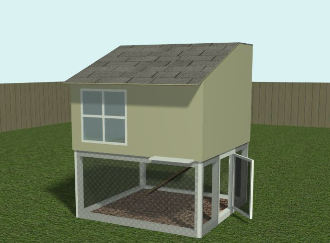Upon deciding to hatch your own chicks, the very first thing you’ll probably want to do is find yourself one of the following:
* A hatchery who will be able to sell you fertilized chicken eggs
* A decent incubator that fits your needs.
The question now is how do you figure out which chicken incubator will work best for you? This tends to become a problem when you don’t know the first thing there is to know about incubators and hatching.
Probably the most important thing to remember about having an incubator is that temperature means everything.
Chicken eggs need a constant rate of temperature in order to mature from embryo to chick in twenty-one days, and while the chicken incubator is there to help you achieve this end, you need to help the incubator out, too.
Find a place in your house or in your chicken coop that’s away from direct sunlight and has a consistent temperature. Drastic flux in temperature isn’t good for your developing egg – direct sunlight will kill the embryo, while little heat will ensure that the eggs don’t develop at all.
Once you have a good spot, go out and buy (or make, if you’re the enterprising do-it-yourself type) yourself a chicken incubator.
If you plan on just hatching two to three eggs, you’re probably good with one of the basic incubation units they sell at the shop. However, the more eggs you’ll be hatching, the bigger an incubator you’ll need, so gauge how much hatching space you will be using.
What do you look out for in an incubator, though? That’s an easy question to answer, because incubators are designed to do one thing and one thing only: generate an environment favorable to the hatching of the eggs.
To that end, you’ll likely find a thermometer and a thermostat or a high-watt bulb inside your incubator.
This will be used to measure and increase / decrease the temperature inside the unit.
The chicken incubator will also probably be constructed in such a way that there will be implements that will let air inside when necessary. Fertilized eggs and developing chicks need oxygen to develop, so this feature’s pretty important too.
Some incubators have built-in wet-bulb thermometers in order to check for the humidity levels, while others don’t. Either way, the wet-bulb thermometer is important, as you need to maintain a level of precipitation within the incubation chamber.
Be sure to go through each and every chicken incubator you can find in the store. That way, you’ll have a better idea of what they can do for you and what features you can and will use.
Happy Hatching.
Chad B. is an advocate for backyard chicken care and has been involved in raising chickens since he was little boy back in 1986. Find out more about using a chicken incubator and get a free 10-lesson chicken raising mini-course by visiting Chad’s site http://RaisingChickenSecrets.com



Leave a Reply